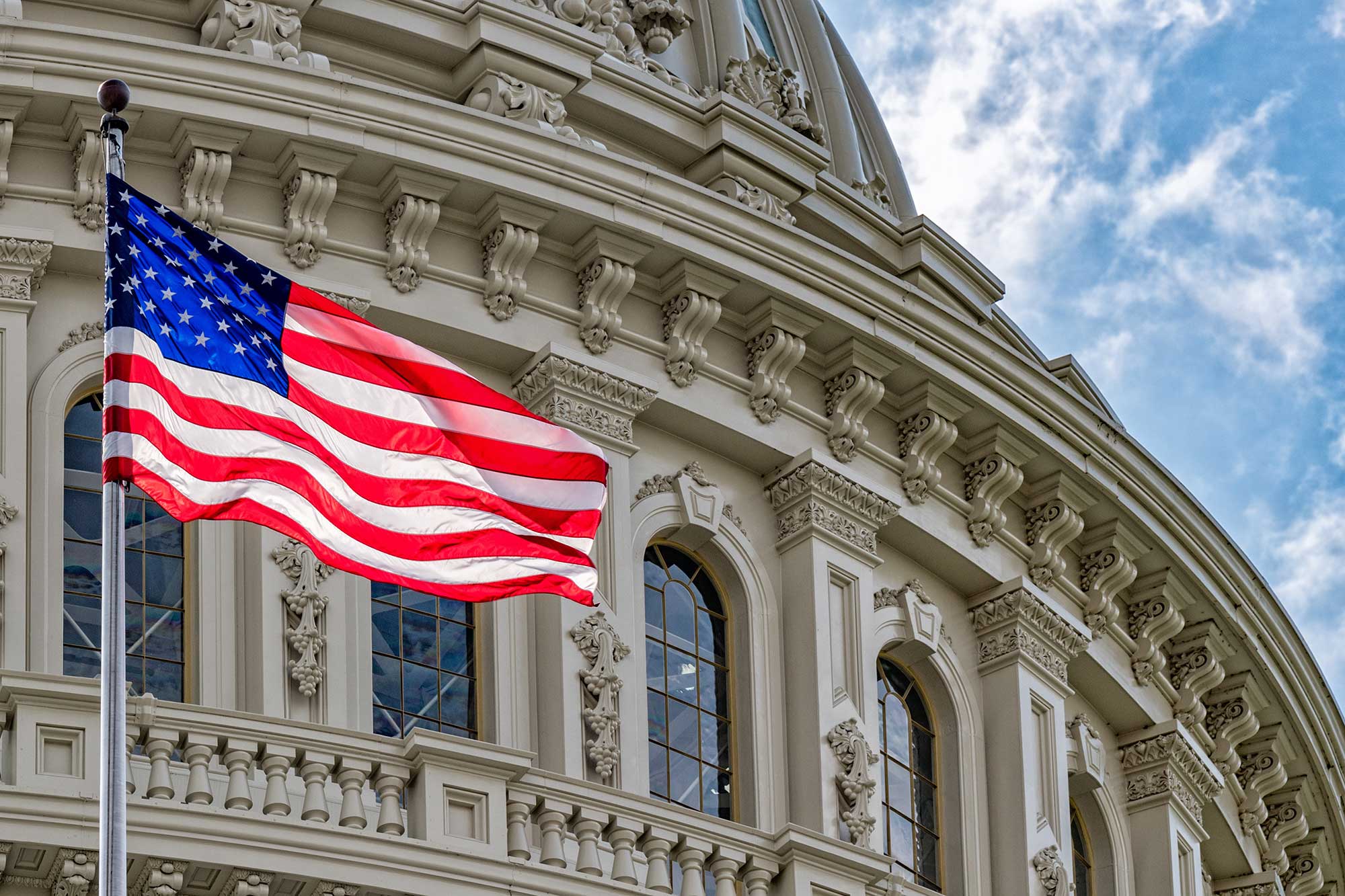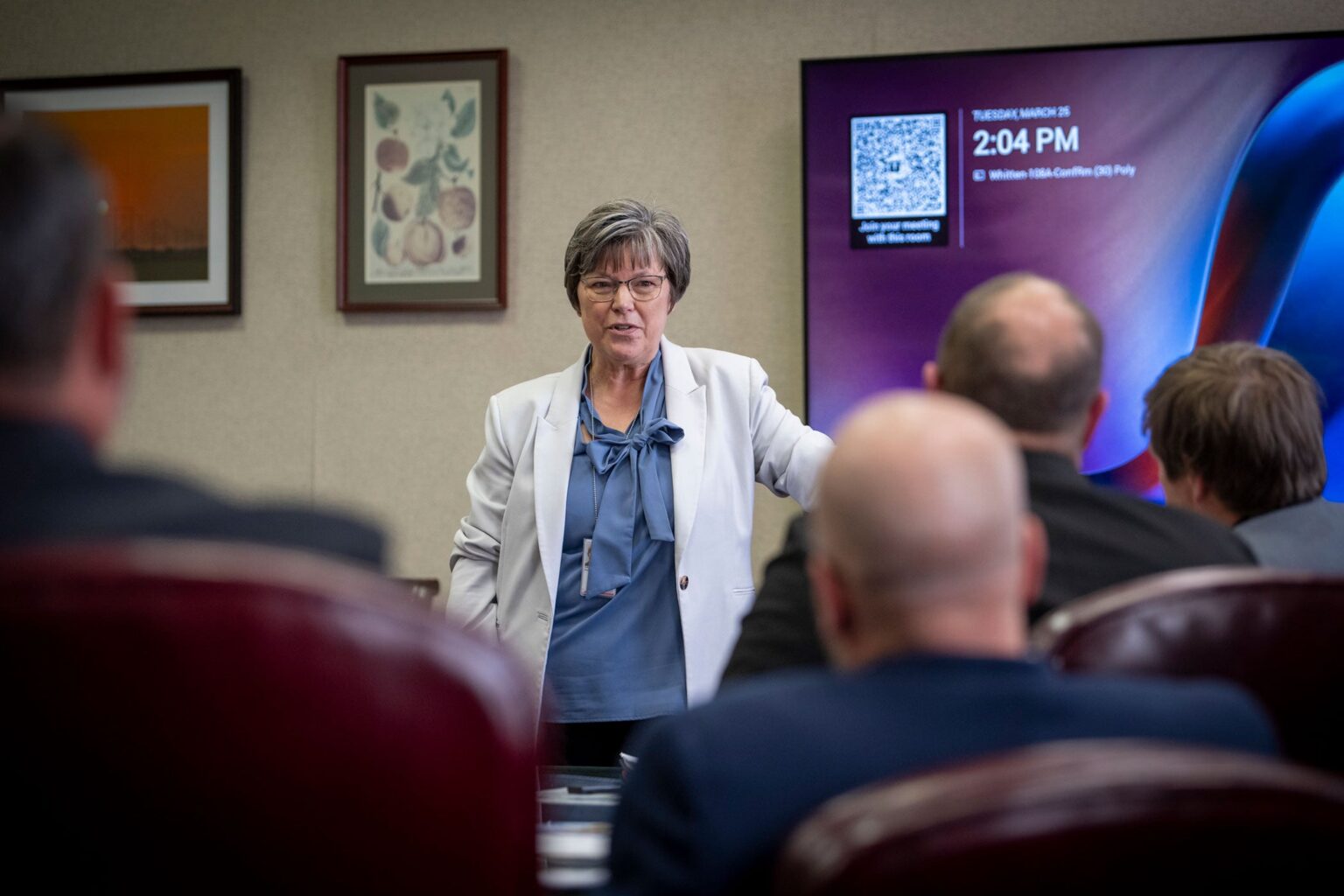Policy decisions in Washington, D.C., at on the state level affect everyone, but maybe agriculture more than most. From major efforts like the farm bill to more niche topics such as nutrition assistance, conservation, and rural development, policies play a huge role in agriculture and on the way our food system operates.
It’s incredibly important that ag has a presence in the making of these decisions. We need to have a seat at the table, not just spend our time producing food for the table.
It’s important to recognize that lobbying is not a dirty word. Lobbying tends to have some bad connotations, but in its purest sense, it should be a tool to help legislators understand how policy affects farmers and ranchers. Lobbyists work to influence policymakers and look out for the interests of agriculture.
This role is important because the vast majority of legislators have never worked in a tractor for a 12-hour day or pulled a calf at 2 a.m. Simply, most of them have no idea what it’s like to work in agriculture. It’s a lobbyist’s job to help the legislators understand what happens in ag and how the decisions they make affect everyone who produces our food, fiber, and fuel.

And lobbying doesn’t just happen on a national scale. Local and state governments also need to hear the voice of agriculture.
There are lots of businesses and groups that lobby on behalf of agriculture. Many of these are associations that you pay dues to be a part of or businesses that work in the ag sector. These groups rely on input from farmers and ranchers and work on their behalf, especially since most of us in ag don’t have time to dive into legislation.
Lobbying efforts in Washington, D.C., are divided into various categories, such as Agricultural Services, Crop Production, Livestock, and Dairy. According to Open Secrets, some of the top industry lobbyists are the U.S. Beet Sugar Association ($3.8 million), Archer Daniels Midland ($3.65 million), the National Pork Producers Council ($2.69 million), and Land O’Lakes ($2.49 million).
In 2024, 1,309 lobbyists spent a total of $178,545,202 on behalf of agribusiness in the nation’s capital.
Another powerful tool in the lobbying sector is legislative monitoring and tracking. It’s virtually impossible to know every piece of legislation, which is why certain groups spend a lot of time tracking legislation. Then they can inform others of proposed legislation so the ag industry can get involved at an early stage and be prepared for what’s to come.
Information found by legislative trackers can also give farmers and ranchers a heads up on who’s a friend or foe to the ag industry. The goal of monitoring legislation is to be able to respond to upcoming legislation strategically, not just react to it as it happens.
There’s also something you as an individual can do to help advocate for ag in legislation. Talk to your representatives. It is their job to represent their constituents, so please speak up. If there’s a bill you support or disagree with, let your representative know. Calling, sending a letter, sending an email, or even sending a fax are all ways that you can get in contact. Posting and tagging them on social media can also help.
It might take some time out of your day to write and send, but farmers make up such a small percentage of the U.S. population, it is crucial that our voices are heard. Here’s some tips for contacting your representative:
- Tell your story and make it personal. Share how legislation will affect your daily life and the ag industry. Explain how and why this matters to you.
- Explain your connection to the legislator. If you’ve voted for them, donated to their campaign, or maybe know them or their family, let them know. Having some sort of connection will make your representative feel closer to you and your thoughts are more powerful.
- Keep it short. Do not write a five-page letter, keep it concise and on topic. Representatives hear about many different issues from lots of different people, so to respect their time, keep it short.
- Remember that you are the expert. Be sure to share your knowledge.
There’s other things you can do to make a difference. Participate in a “Day on the Hill” event at the state or federal level. This is a great way to show physical support for ag and get a chance to meet in person with your representatives. Your state Farm Bureau is one example of a group that likely hosts Day on the Hill events.
One of the biggest ways to get involved is simply educating yourself and sharing your knowledge with others. Staying up to date on legislation and being aware of what’s happening is crucial. So is educating others about policies that affect ag.
Having public opinion on the side of agriculture is really important. One recent example of this is California’s Prop 12. Prop 12 established minimum space requirements for certain farm animals. Prop 12 was passed when California voters who did not know how this would actually affect agriculture voted yes. Prop 12 has had huge impacts on farmers and prices of pork. It’s important that those of us in ag are aware of proposed policies and can educate others who don’t have ag experience about these policies and how they could affect farming and ranching.
Advocating for agriculture through policy is not just a job for lobbyists. While lobbying plays a big role in ag, there’s a lot of ways that ag stays aware and makes an influence. Each person can make a difference. If we don’t speak up someone will speak for us, and that’s not always a good thing.
Don’t underestimate the power you have. It’s key that ag stays involved with policy so we can focus on feeding the world, not reacting to legislation.
Michelle Miller, the Farm Babe, is a farmer, public speaker, and writer who has worked for years with row crops, beef cattle, and sheep. She believes education is key in bridging the gap between farmers and consumers.


